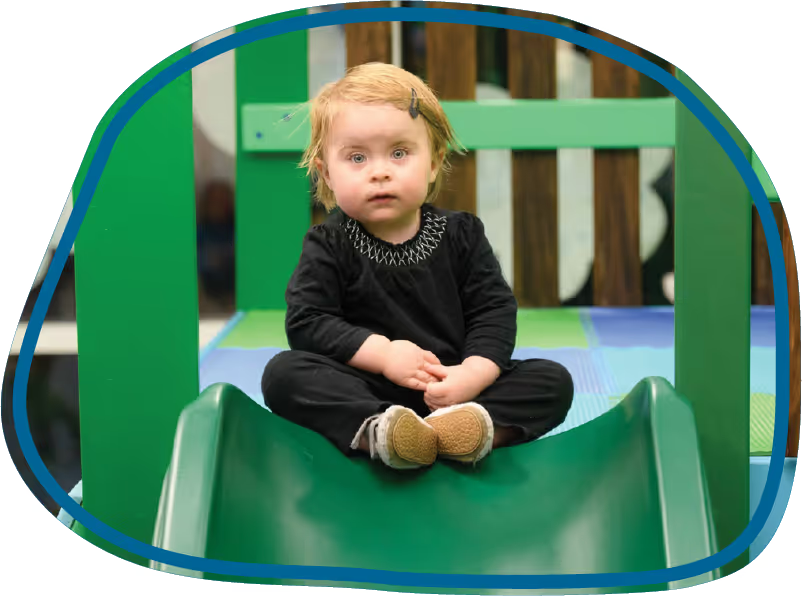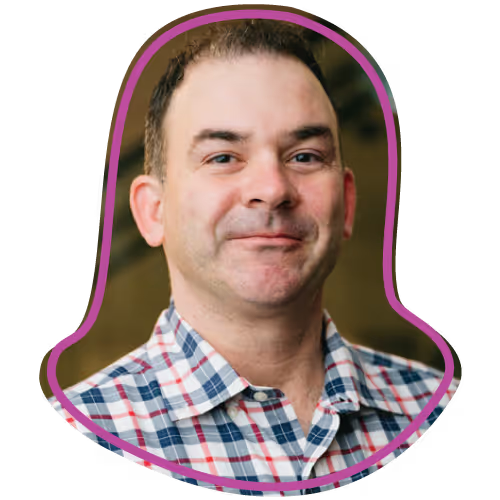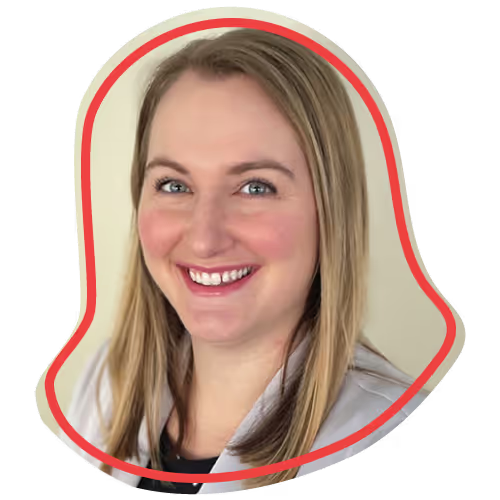

An early autism diagnosis can open doors to vital supports like ABA therapy and school resources, helping your child build on their strengths and meet important milestones.
Most importantly, it helps you feel confident knowing you’re giving your child the best start possible

No one knows your child like you do. If something feels different, it’s okay to pause and ask questions. Autism testing can give you clear answers and next steps. Review the list below to see if any of these behaviors reflect what you’re experiencing.
Count the items you checked above. If your child meets 5 or more of the criteria above, we encourage you to explore a formal evaluation.
Early diagnosis and intervention are key, and our team is here to answer questions or to schedule an assessment.
Our Neuropsychology team administers the ADOS-2, which is an assessment that observes how a child interacts with their environment. The ADOS-2 is mostly play-based, and probes for social and emotional behaviors, and is recognized as the field's current "gold standard" for diagnosing or excluding autism.
In addition to administering the ADOS-2, our team gains insight about your child from a thorough intake meeting and behavioral feedback from parents and teachers (if applicable). One parent is present during the assessment and may be asked at certain times to participate.
No two children are alike—and neither are their evaluations. At North Shore Pediatric Therapy, we provide different types of assessments designed to match your child’s age, developmental stage, and unique needs. Whether you’re looking for answers about autism, developmental concerns, or learning challenges, our team will help you find the right evaluation and next steps.
Families who are seeking early clarity often begin with our autism assessments for toddlers and preschoolers.
These evaluations are available in Arlington Heights, Deerfield, Evanston, and Naperville, with appointments typically lasting around 3 hours.
For younger children with concerns related to behavior, language, attention, mood, or anxiety, our developmental testing offers a broader look at growth and functioning.
These evaluations take place at our Des Plaines center, with sessions lasting 3–4 hours.
For school-age children, we offer full neuropsychological evaluations that explore learning, memory, attention, emotional functioning, and more.
Depending on your child’s needs, assessments may last a half day or full day at our Des Plaines location.
Many clinics use the ADOS-2 for autism testing—but who gives the test matters just as much as the test itself.
At North Shore Pediatric Therapy, your child’s evaluation is led by licensed neuropsychologists in Evanston, Deerfield, Naperville, and Arlington Heights. These are doctoral-level clinicians with specialized training in child development, diagnostics, and a wide range of learning and emotional concerns.
Why families across Illinois choose NSPT:

When a neuropsychologist leads your child’s autism testing, you gain clearer answers, a full picture of their development, and confidence in the next steps. At NSPT, every evaluation is doctor-led—because your child deserves the most thorough, reliable start.

Dr. Stasi is a 2005 graduate of the Illinois Institute of Technology. Over the years, Dr. Stasi has been published professionally and has given numerous presentations on Neuropsychology. Previously, Dr. Stasi was an Assistant Professor of Pediatrics and Behavioral Sciences at Rush University Medical Center in Chicago, and an adjunct professor for The Illinois Institute of Technology.
In 2009, Dr. Stasi started the Neuropsychology and Testing Center for North Shore Pediatric Therapy. In his tenure, he has helped thousands of kids reach their fullest potential.

Rhiannon Law, Ph.D. is a graduate of Indiana University - Bloomington. Dr. Law works closely with patients and their families to provide comprehensive assessments to inform diagnostic impressions and to guide broader treatment planning. Dr. Law specializes in testing related to ADHD, autism, learning, and complex medical conditions (epileptic syndromes, genetic/metabolic disorders). Past research has focused on joint attention in autistic toddlers, pediatric performance validity testing, executive functioning following traumatic brain injuries, and trauma-informed systems in schools. Dr. Law has worked with families in a variety of settings, including pediatric hospitals, academic medical centers, schools, DCFS/juvenile justice, and residential treatment centers.
Dr. Law works closely with patients and their families to provide comprehensive assessments to inform diagnostic impressions and to guide broader treatment planning.
At North Shore Pediatric Therapy, we make autism evaluations simple and supportive for families. Whether you’ve already received a referral or you’re just starting to wonder if testing is right for your child, our neuropsychology team is here to guide you every step of the way.
Our intake team will start with a quick virtual pre-screening to learn more about your child and determine if an autism evaluation is appropriate. We’ll gather paperwork, check insurance benefits, and answer your questions so you feel prepared.
In most cases, your child’s evaluation and feedback happen on the same day at one of our convenient Chicagoland centers in Naperville, Glenview, Arlington Heights, or Deerfield.
The assessment is play-based and typically takes just a few hours. Before you leave, you’ll receive initial feedback so you don’t have to wait months for clarity.
A few weeks after the assessment, you’ll receive a detailed written report explaining the results of the autism evaluation.
This report can be shared with your pediatrician, school, or therapy team, and gives you a clear roadmap for next steps.
Many parents come to us with questions—some are just starting to notice concerns, others already have an evaluation on the calendar but feel unsure about what comes next.
No matter where you are, it’s normal to feel a little overwhelmed.
Our team is here to listen, guide, and give you honest answers with compassion every step of the way.
Reach out—we’ll connect you with someone who understands and can help you feel confident about your next step.
If you’ve noticed differences in the way your child talks, plays, or connects with others—or if your pediatrician has raised concerns—an autism evaluation can give you answers. Our specialists in Evanston, Deerfield, Naperville, and Arlington Heights provide clarity and peace of mind for families across Chicagoland.
No. In fact, earlier is better. Autism can often be identified by age 2, and research shows that starting intervention at a young age leads to stronger long-term outcomes. That’s why our Early Autism Testing Clinic focuses on children under 4.
Not always. Many families contact North Shore Pediatric Therapy directly to schedule. If your insurance company requires a referral, our team will walk you through that process.
We specialize in early autism evaluations for toddlers and preschoolers (up to age 4). For older children through age 18, our neuropsychologists provide full evaluations covering autism, ADHD, learning disorders, and other developmental or emotional concerns.
Every child develops differently, but some early red flags may include: limited eye contact, delays in speech, repetitive movements, or not responding when their name is called. You can explore more details using our diagnostic evaluation tool.
Beyond autism, our neuropsychological testing covers a wide range of concerns including ADHD, anxiety, depression, sleep difficulties, and learning differences. We also assess cognitive skills, memory, language, problem-solving, executive functioning, and emotional regulation.
Here’s the breakdown:
EI is an excellent start, but it doesn’t provide a formal diagnosis. To access services like ABA therapy, insurance coverage, or school accommodations, your child will still need a medical diagnosis.
Not necessarily. Schools use their own criteria to determine eligibility for special education under “autism,” but that’s different from a clinical diagnosis. For insurance and outside services, you’ll need an evaluation from a licensed psychologist or developmental pediatrician.
No. While a BCBA may use tools like the ADOS to screen for autism traits, only neuropsychologists, developmental pediatricians, or licensed clinical psychologists can make a formal diagnosis.
A true medical diagnosis is:
Typically no. Most insurance providers require a diagnosis from a licensed psychologist or physician to approve ABA therapy or other therapy services.
Not at all. Those records are helpful. A comprehensive evaluation simply pulls everything together to give you the documentation and access you need for services.
Absolutely. Many families combine both. EI provides early support, and our private evaluation ensures your child has what they need for school planning, insurance coverage, and future services.
The most valuable step is a formal autism evaluation with a licensed neuropsychologist. It provides the clearest path forward and opens doors to a full range of supports.
Our intake team is here to listen, answer questions, and guide you toward the right decision. Call us anytime to talk through your concerns.
For children ages 18 months to 5 years, we usually have openings within 2–3 weeks at our centers in Evanston, Deerfield, Arlington Heights, and Naperville.
Scheduling depends on whether your child needs a half-day or full-day of testing:
Half-day is typically scheduled 1–2 months out. Full-day is usually 3–4 months out. Our intake team can guide you toward the right test for your child. Call us anytime to talk through your concerns.
For children ages 18 months to 5 years, we conduct autimssm testing in Evanston, Deerfield, Arlington Heights, and Naperville.
For other evaluations or older children, evaluations are done in our Des Plaines center.
Most of the time, yes. We work with many major insurance providers and confirm your benefits before the appointment. We’ll also provide you with billing codes if you want to check with your insurance company directly.
We offer private pay options and will review those with you during your intake call.
The visit starts with a discussion about your child’s history with one of our neuropsychologists. After that, our team uses play-based tools such as the ADOS-2 to observe your child’s interactions. At the end, you’ll meet with the doctor to review results and get recommendations.
Our neuropsychologists use gold-standard tools like the ADOS-2, combine them with developmental history and direct observation, and align everything with DSM-5 guidelines.
Yes. While early autism testing appointments focus only on autism, our broader neuropsychological evaluations cover learning, emotional, behavioral, and attention concerns in children through age 18.
You’ll meet with your neuropsychologist the same day to review initial results and recommendations. A full written report will be delivered within 3–4 weeks.
Feedback sessions are scheduled 2–3 weeks after testing. The complete written report is typically finalized within 4–5 weeks.
We’ll walk you through next steps—whether that’s ABA therapy, speech therapy, occupational therapy, or working with your pediatrician. Our team will make sure you know your options.
Even without a diagnosis, an evaluation can highlight areas where your child may need extra support—at school, at home, or in therapy.
Yes. Every family receives a detailed written report summarizing your child’s strengths, needs, and recommendations. You can share this with schools, doctors, and therapists.
Yes. Because our autism testing clinic operates within North Shore Pediatric Therapy, you’ll have access to ABA therapy, speech therapy, occupational therapy, physical therapy, and mental health services at more than 12 Chicagoland locations.